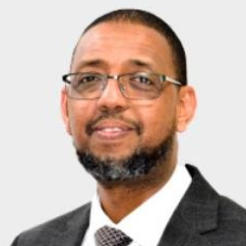Islamic Relief Worldwide has announced the appointment of Naser Haghamed as its new chief executive, replacing Dr Mohamed Ashmawey who left the organisation at the end of 2015.
Haghamed (pictured) takes up his new role this week, having worked in a number of different capacities across the Islamic Relief organisation for over 20 years.
Haghamed previously worked with Islamic Relief Worldwide’s IT Support, in its International Programmes department and with TIC International – a trading subsidiary of Islamic Relief that encompasses clothes recycling and its charity shops.
He will represent Islamic Relief at the official signing of the Paris Agreement on Climate Change in New York as part of a delegation handing in an Islamic Declaration on the issue this week.
Speaking on his appointment, Haghamed said: “It is humbling to be appointed as CEO of Islamic Relief Worldwide and given the opportunity to continue serving the millions of people this organisation supports around the world. Gender justice, climate change and reducing the risk from disaster are areas where I believe we can make great strides and impact.
“I especially look forward to continuing our different relationships with the UK department (DFID), UN, EU and others as we continue to work on the important issues of our time, such as supporting the victims of the Syrian crisis and humanitarian reform.”
According its latest accounts, Islamic Relief Worldwide has an annual income of £99.1m and spending of £92.3m last year. This represented the highest income level achieved by the charity since 2012, when it broke £100m income for the first time in its history.
The major driving figure behind this surge in income was a 37 per cent increase in its voluntary income which offset a fall in institutional funding, which all but halved.









